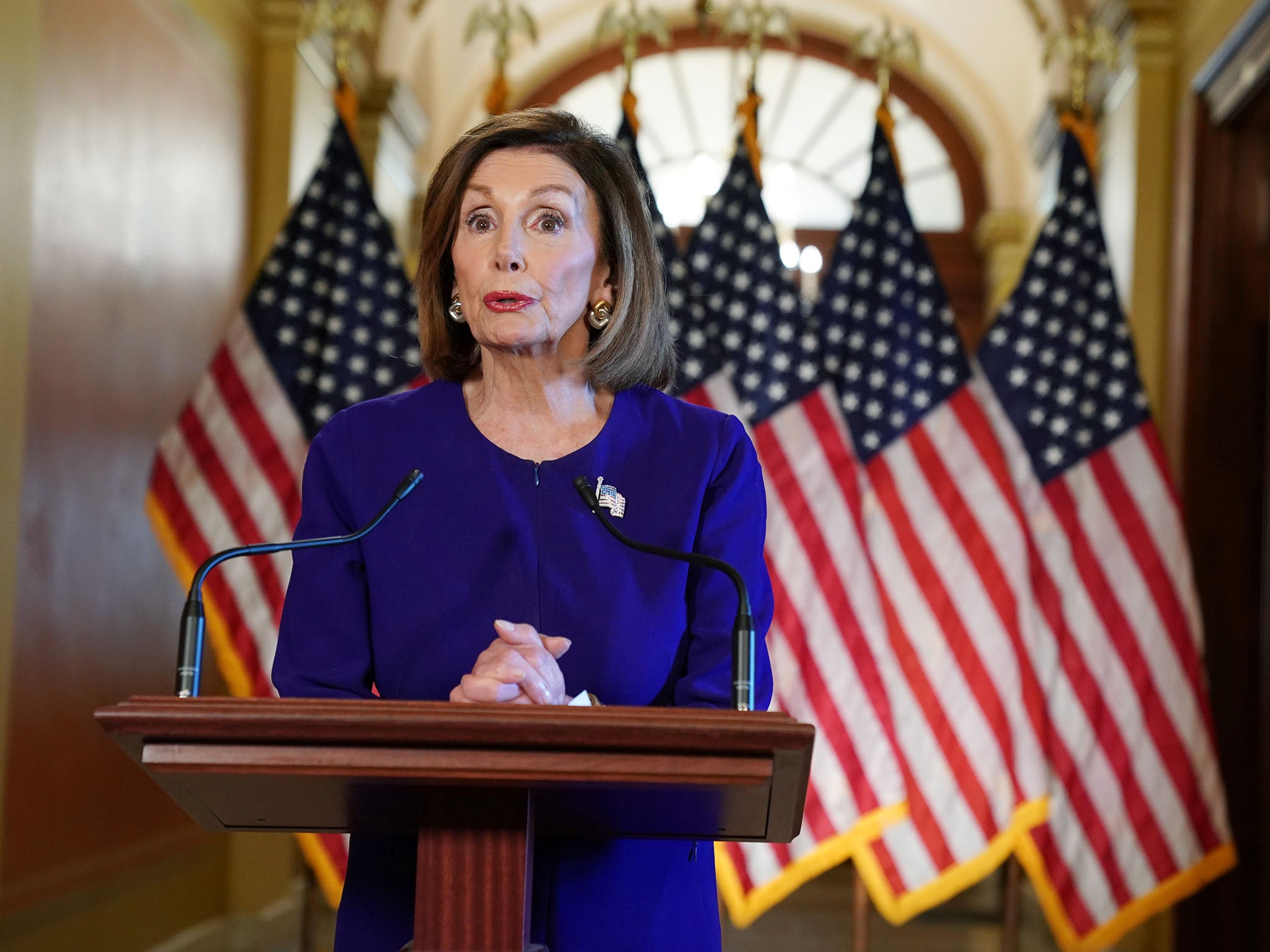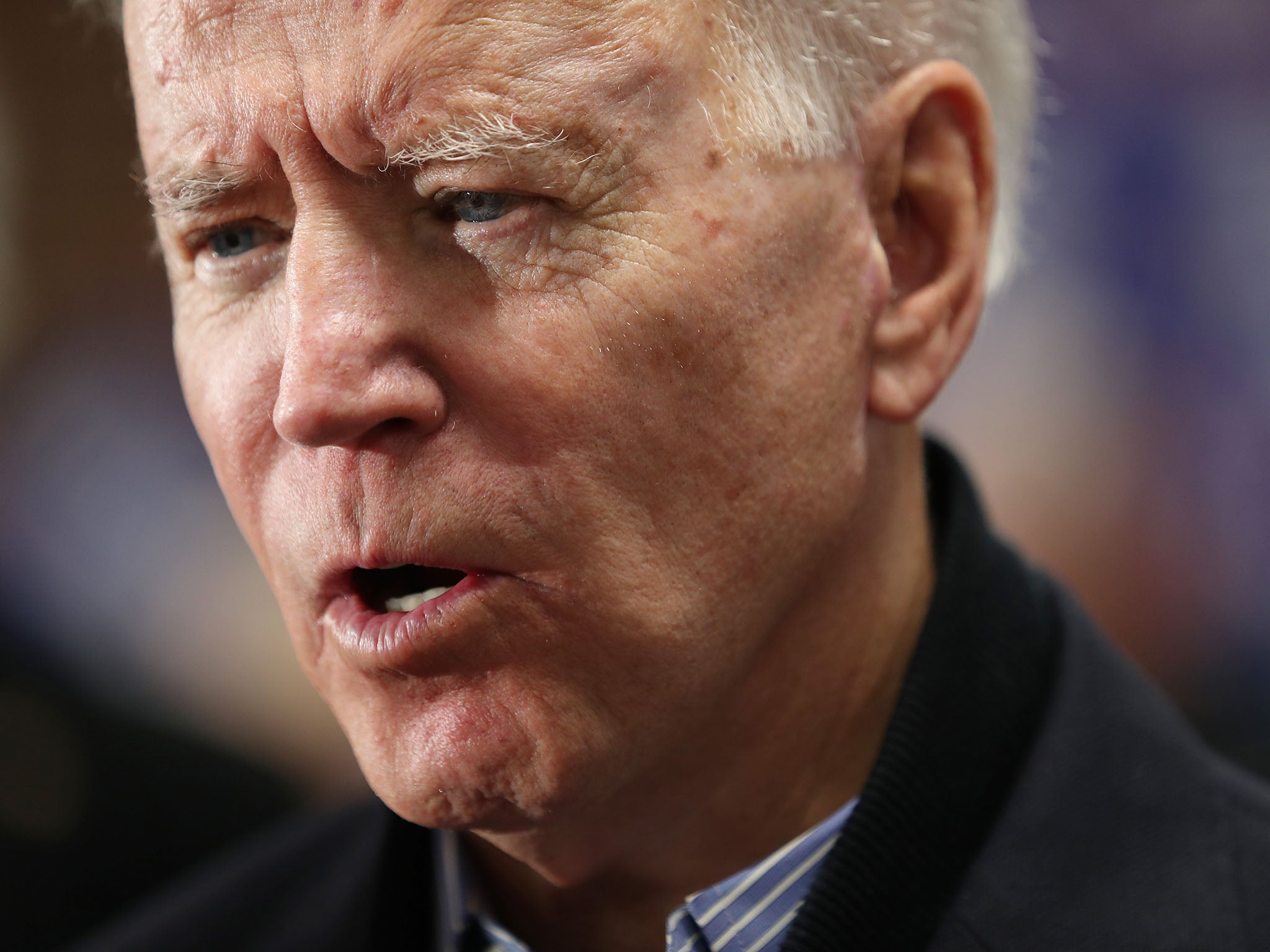Trump shares post with alleged whistleblower’s name to 68 million followers
Other conservative news outlets already have posted anonymous CIA employee’s name
Your support helps us to tell the story
From reproductive rights to climate change to Big Tech, The Independent is on the ground when the story is developing. Whether it's investigating the financials of Elon Musk's pro-Trump PAC or producing our latest documentary, 'The A Word', which shines a light on the American women fighting for reproductive rights, we know how important it is to parse out the facts from the messaging.
At such a critical moment in US history, we need reporters on the ground. Your donation allows us to keep sending journalists to speak to both sides of the story.
The Independent is trusted by Americans across the entire political spectrum. And unlike many other quality news outlets, we choose not to lock Americans out of our reporting and analysis with paywalls. We believe quality journalism should be available to everyone, paid for by those who can afford it.
Your support makes all the difference.President Donald Trump retweeted a post naming the alleged whistleblower who filed the complaint that became the catalyst for the congressional inquiry that resulted in his impeachment by the House of Representatives.
On Friday night, Mr Trump shared a Twitter post from @surfermom77, who describes herself as “100 per cent Trump supporter”, with his 68 million followers. That tweet prominently named the alleged whistleblower and suggested that he had committed perjury.
By Saturday morning, the post did not appear on Mr Trump's timeline, though it was visible to certain users and via direct link. On Saturday evening, Twitter acknowledged that a technical glitch made Mr Trump's retweet appear visible to some users but not others.
“Due to an outage with one of our systems, tweets on account profiles were visible to some, but not others,” Twitter said in a statement. “We're still working on fixing this and apologise for any confusion.”
Twitter said the discrepancy – with the tweet appearing for some and not others – was the result of a system error that affected tweets from millions of users, including the president.
For months, Mr Trump has threatened to disclose the identity of the whistleblower, complaining that he should be able to face his accuser. In the past few days, he has inched closer to doing so. On Thursday night, the president retweeted a link to a Washington Examiner story that used the name.
The alleged whistleblower has also been named in other conservative media, including Breitbart News. He was named by a contributor on Fox News, and Donald Trump Jr has tweeted the name.
The White House did not respond to a request for comment.
The whistleblower's identity has been kept secret because of whistleblower protection laws, which exist to shield those who come forward with allegations of wrongdoing by the government. Whistleblower advocates say this anonymity is important, because it protects those who speak up from retaliation and encourages others to come forward.
The Washington Post has chosen not to publish the name. Vice president for communications Kris Coratti said The Post “has long respected the right of whistleblowers to report wrongdoing in confidence, which protects them against retaliation. We also withhold identities or other facts when we believe that publication would put an individual at risk. Both of those considerations apply in this case”.
Mr Trump and his allies claim the law does not forbid disclosing the identity of the whistleblower. Federal laws offer only limited protection for those in the intelligence community who report wrongdoing, and those in the intelligence community have even fewer protections than their counterparts in other agencies.
The 1998 Intelligence Community Whistleblower Protection Act did not detail any protections for whistleblowers from retaliation – instead merely describing the process to make a complaint.
Whistleblower attorney Bradley Moss told the The Post in September that the law does not apply to members of Congress who might disclose the whistleblower's name. “This is all very, very fragile, and a lot of the protections that we understand to exist are based more on courtesy and custom than anything written down in law,” Mr Moss said.

Mr Moss is the law partner of Mark Zaid, one of the whistleblower's attorneys, though he has had no involvement in that case.
Attorney Stephen Kohn, an expert in whistleblower protection laws, said this circumstance is unprecedented given the president's unique duty to protect the confidentiality of intelligence agency whistleblowers.
In the whistleblower protection act that covers the intelligence community, Congress gave the president enforcement authority to protect the whistleblower because of the sensitivity of what that person could be revealing.
“The paradox is that it was the president's duty to protect this person,” Mr Kohn said. “It's inconceivable that he not only doesn't do it, but violates it.”
The whistleblower, who works for the CIA, filed an official complaint that, among other concerns, pointed to a 25 July phone conversation in which Mr Trump asked Ukrainian president Volodymyr Zelensky to investigate former vice president Joe Biden, a Democratic presidential candidate.
After several months of investigation, the House voted 18 December to impeach Trump on charges of abuse of power and obstruction of Congress. The senate will hold a trial – where the Republican majority is expected to acquit him – in early 2020, once House speaker Nancy Pelosi transfers the articles of impeachment.

Congressional Republicans have demanded the whistleblower testify as part of the impeachment probe. Democrats have countered that such testimony is unnecessary because other witnesses have corroborated and expanded on the original complaint, which was based on secondhand information.
The president has repeatedly disparaged the whistleblower, though never by name, in tweets, interviews and rally speeches. In late September, Mr Trump accused the whistleblower's sources of being “close to a spy”, adding, “you know what we used to do in the old days when we were smart? Right? With spies and treason, right? We used to handle them a little differently than we do now” .
In early November, the whistleblower's attorney sent White House counsel Pat Cipollone a cease-and-desist letter, demanding the president stop denigrating the whistleblower.
“I am writing out of deep concern that your client, the president of the United States, is engaging in rhetoric and activity that places my client, the intelligence community whistleblower, and their family in physical danger,” wrote attorney Andrew Bakaj. “I am writing to respectfully request that you counsel your client on the legal and ethical peril in which he is placing himself should anyone be physically harmed as a result of his, or his surrogates', behaviour.”
The whistleblower, who is reportedly still at his job, is driven to and from work by armed security officers when threats are elevated. Threats against him seem to spike whenever Mr Trump tweets about him, The Post has previously reported.
The Twitter feed for @surfermom77, who identifies herself as “Sophia” on the social media site, is a daily stream of pro-Trump and anti-Democrat memes and propaganda. In 2016, the account shared the false conspiracy theory that former president Barack Obama was a Muslim.
In the days after Christmas, Mr Trump retweeted more than a dozen posts from users affiliated with QAnon, the conspiracy theory that there is a “deep state” secretly plotting to take down Mr Trump. The FBI has identified QAnon as a potential domestic terrorism threat.
On Saturday morning, former solicitor general Neal Katyal, a frequent Trump critic, reacted to Mr Trump's retweet, writing on Twitter: “Who would want to live in a country where its leader could just name the identity of a whistleblower and invite retaliation against him? Despicable, un-American, and @MittRomney your country (and your Party) needs you now.”
Former Democratic senator Claire McCaskill (Missouri), who sponsored whistleblower protection legislation in the senate, singled out another Republican on Saturday, tweeting at senator Charles Grassley, who co-founded the Senate Whistleblower Protection Caucus and has authored and co-authored many of the nation's whistleblower protection laws. “@ChuckGrassley where the hell are you?” Ms McCaskill tweeted. “We worked hard on whistleblower protections. I thought your desire to protect and defend whistleblowers was in your bones. Was I wrong? What happened to you?”
Representatives for Mr Grassley and Mr Romney did not immediately respond to a request for comment.
The Washington Post

Join our commenting forum
Join thought-provoking conversations, follow other Independent readers and see their replies
Comments